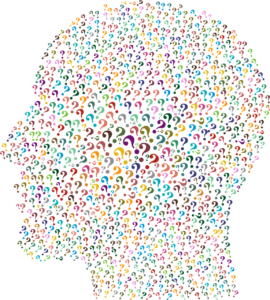
Image by Gordon Johnson from Pixabay
The subject line has been used in various contexts to grab people’s attention. What is knowable—and what is not—has been the subject of philosophical discussion seemingly forever. I am reminded of Woody Allen’s quip: “Is knowledge knowable? If not, how do we know?”
At a more mundane level, people are inclined to plead ignorance of certain truths when it suits their purpose, maybe even demanding “proof” of something without specifying what kind of proof would be sufficient. But I believe that people know much more than they let on or are willing to live up to. Consider the following examples and their implications:
-Everyone is going to die—and we all know that—but this is not something we want to acknowledge. This becomes a serious problem when we live on a day-to-day basis as if we will never die or think that death is so far off as to be somehow irrelevant.
-We know deep down that human life is special, in a way that other life forms are not. We might feel bad about stepping on a bug or running over a squirrel on the road, but we know that those things are qualitatively different than squashing a human being. But do our attitudes, actions, and laws necessarily reflect the value of human life?
-Everyone recognizes that no one is perfect. We even have a phrase for this: human nature, which is typically used in reference to shortcomings inherent in all of humanity rather than any “goodness” it possesses. So much finger pointing and posturing, whether in the public square or the private realm, is simply hypocrisy.
-We all want to be treated in accordance with the Golden Rule and know that it is morally preferable to selfishness. Indeed, we object when we are treated badly. The Golden Rule is almost universally acknowledged but is not universally practiced, for reasons of convenience.
The disconnect between what we know to be true and how we live is the cause of much unhappiness and injustice.